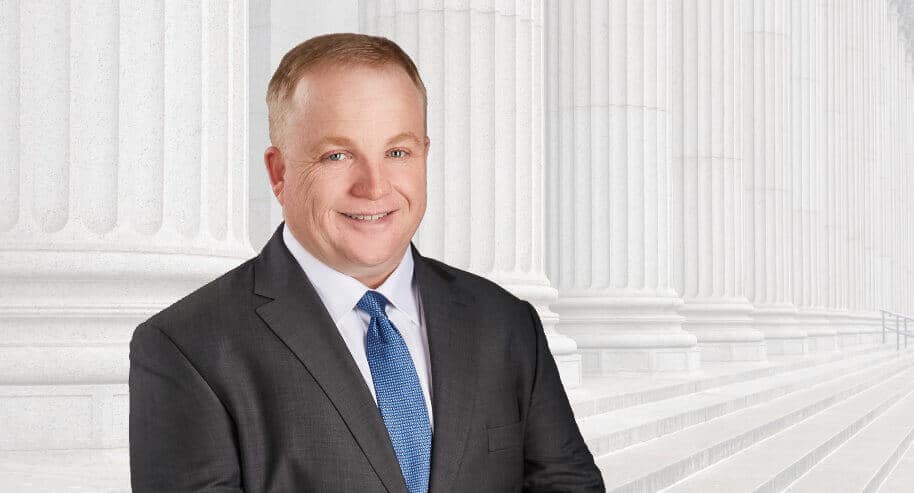
When someone needs assistance with decision-making, money management, and other critical aspects of their lives, your best option is to work with someone with local knowledge and considerable legal experience. For instance, a Raleigh guardianship attorney with the Breeden Law Office can help you navigate the Wake County guardianship process, which can be complex and full of challenges.
Raleigh, NC family lawyer Jonathan Breeden has represented clients and their loved ones for over 20 years. He has helped many families in Raleigh and the surrounding areas with the most complex and straightforward guardianship issues and would be happy to help find a solution for you.
If you feel that becoming a legal guardian is a wise decision or a necessary step you need to take, contact Breeden Law Office at (919) 480-8005 or use our online form to schedule a consultation.
Legal guardianship describes where a person obtains court approval to act on behalf of another individual for certain types of decision-making. Under North Carolina’s guardianship laws (NCGS 35A), a ward is an individual who has some condition that incapacitates them. A guardian is the person, corporation, or public agent who makes decisions regarding the ward’s financial and/or personal matters.
Children under the age of 18 are legally unable to act and make decisions in many situations. Appointing a guardian is necessary to handle specific legal issues until the ward reaches age 18.
There are two particular considerations in child guardianship cases:
To become the guardian of a minor, you must complete an Application for Appointment to become either the guardian of the estate, guardian of the person, or general guardian for a minor. This form must be filed with the estate division of the Clerk of Superior Court of Wake County.
A guardianship may also be issued if an adult is deemed incompetent. In these situations, the Clerk of the Superior Court may authorize an appointed guardian to be a substitute decision-maker for the adult.
The Wake County Adult Guardianship Program provides services in Raleigh and throughout Wake County. The program may advocate in the person’s best interests and provide an annual assessment of the individual’s continued need for guardianship. If you have further questions or are looking for assistance through this process, contact an adult guardianship lawyer from Breeden Law Firm.
There are three forms of legal guardianship in North Carolina over minors or adults.
Like the rest of the state, a guardian may be a person, company, or public agent, depending on the situation and needs to be met. Also, more than one guardian may be appointed to a single ward.
For example, if it is in the ward’s best interests, a medical professional may have approval by the court to make medical decisions. A financial advisor may be appointed to handle extensive investments and assets.
A guardian must make decisions that align with what you would do when managing your affairs. They must do what is in the best interests of the ward.
A personal guardian may be required to:
An estate guardian may be required to:
General guardians would be responsible for all of the tasks required by personal and estate guardians.
When seeking to become the guardian of an adult in or around Raleigh, NC, you must prove that they are incompetent to handle their own matters. This can be challenging, as family members and the potential ward may resist.
You will have to present evidence and testimony to the court, showing that the person cannot take care of financial matters and medical needs independently. This may require medical exams and other professional records.
It’s best to work with a Raleigh guardianship lawyer who understands what a Wake County judge needs to see to find someone incompetent. Attorney Jonathan Breeden has successfully navigated many incompetency hearings in the area, and he can do the same for you.
A potential ward in North Carolina has a right to a lawyer and a Wake County guardian ad litem. Guardian ad litem is considered the court’s eyes and ears concerning the minor or allegedly incompetent adult. The court may appoint them.
Guardian ad litem may interview the potential ward and people in their lives, including teachers, medical providers, parents, friends, and family members. They will also observe the ward at home and taking care of personal and financial matters. They will then report their findings to the judge.
The Wake County Guardian ad Litem Program provides court-appointed advocates for abused and neglected children who come to the attention of the Wake County court system. These cases may result in children being placed in foster care or a guardian being appointed.
To become a guardian in Raleigh, you must go through the Wake County court process, which is comprised of the following steps:
If the guardianship is challenged, there may be other hearings and an investigation that takes place.
The process of becoming a guardian can be time-consuming and expensive. However, there are ways you can prevent the necessity of guardianship proceedings. If you plan ahead so that family members and loved ones are prepared, you can establish your own directives.
Navigating the guardianship process can feel overwhelming, but you don’t have to go through it alone. With over 20 years of experience, Raleigh guardianship lawyer Jonathan Breeden and his team at Breeden Law Office are here to guide you every step of the way. Whether you’re dealing with complex guardianship issues or simply seeking advice, we’re ready to help.
If you believe guardianship is the right step for your family, don’t wait to get started. Reach out to Breeden Law Office at (919) 480-8005 or fill out our contact form to schedule a consultation with an experienced guardianship attorney today.

Seeking guardianship of a loved one may be necessary, but going through the process in Wake County, NC, can be complex and stressful. Don’t deal with it alone or leave essential matters to chance.
When becoming a guardian is required, turn to the Breeden Law Office. With over two decades of experience in the area, attorney Jonathan Breeden understands that you need to act fast and get things right.
Call us today at (919) 480-8005 or use our online form to reach out.
Call Breeden Law Office today:
Call (919) 480-8005